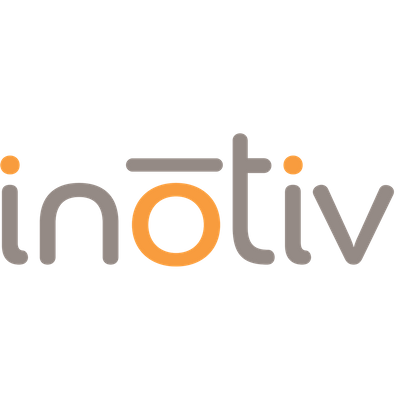Resolving the Unexpected: Strategies for Understanding Genetox Data
Schedule
Wed Sep 25 2024 at 12:00 pm to 04:00 pm
Location
North Carolina Biotechnology Center | Durham, NC

About this Event
This seminar will provide a high-level overview of standard genetic toxicology assays followed by secondary and mechanistic assays that could be used in the case of a positive result in the standard battery of tests. Additionally, the seminar will cover testing requirements for impurities.
- High-level overview of genetox and why it's required by regulators
- FISH/CREST in vitro assays for elucidating mode of action
- CREST in vivo micronucleus assay
- Comet assay
- Pig-a gene mutation assay
- Error corrected next generation sequencing (e.g., Duplex Sequencing)
- Bonus! Impurities testing, including nitrosamines
Shambhu Roy, MSc, PhD, DABT, ERT
Principal Scientist/Study Director Genetic Toxicology
Dr. Roy is a Board Certified (DABT and ERT) Toxicologist with over 20 years of experience in the field of genetic toxicology including three years of post-doctoral research with hands-on practical work knowledge. Shambhu Roy is currently Principal Scientist, oversees the in vivo and in vitro genetic toxicology assays at Inotiv, Rockville MD. Dr. Roy received M.S. and PhD degrees from Gujarat University, India in 1992 and 2000, respectively; studied life sciences with special emphasis on cell biology, role of tobacco in mutagenesis and cancer genetics. Dr. Roy joined a postdoctoral program at University of California, Riverside, in the department of Environmental Toxicology and Neurosciences from 2000-2003. During postdoctoral research he worked extensively on fluorescence in situ hybridization and CREST techniques to screen aneugenic compounds. Since then, he has held various scientific and supervisory positions in contract research organizations. Dr. Roy has conducted thousands of Toxicological assays in multiple in vivo and in vitro test systems, has participated in developing and validating new assay system to meet the emerging challenges in Toxicology. Dr. Roy has published his research works in multiple peer reviewed journals and presented in scientific meetings. Dr. Roy’s current focus is on the development and validation of animal alternative assays (i.e., 3D skin model based micronucleus assay for the safety assessment of dermatological product, particularly for cosmetic industries and spheroid model using organ specific cells). Prior to Inotiv, Dr. Roy served as a Senior Scientist and Study Director in the Genetic Toxicology Divisions of both BioReliance and Covance Labs.
Cheryl Hobbs, MS, PhD
Director, Genetic Toxicology
Inotiv (RTP, NC)
Dr. Cheryl Hobbs, MS, PhD, is the Director of Genetic Toxicology at Inotiv-RTP. Her career spans over 45 years, having worked at medical research institutes as well as pharmaceutical and CRO companies in the general fields of cancer research, gene regulation, epigenetics, and genetic and general toxicology. Since joining Integrated Laboratory Systems (now Inotiv) in 2006, she has designed, performed, directed, and provided scientific oversight for the conduct of genetic and general toxicology testing for government contracts and commercial clients according to internationally accepted regulatory guidelines. She also has contributed to various efforts aimed at developing/validating new chemical screening assays and integrating new technologies into genetic toxicity testing. Dr. Hobbs led ILS’ participation in the JaCVAM-sponsored interlaboratory validation of the rodent comet assay and served on the expert working group for the Pig-a mutation assay, leading to adoption of new OECD test guidelines for these assays, and is currently directing Inotiv’s participation in HESI-sponsored efforts to validate error-corrected next generation sequencing (ecNGS) technology for mutagenicity assessment. Prior to joining ILS/Inotiv, Dr. Hobbs held concurrent appointments at Lankenau Hospital in suburban Philadelphia, and the affiliated Lankenau Institute for Medical Research, where she previously did her postdoctoral training. Before obtaining her doctorate, she was a molecular biologist supporting drug discovery programs at Sterling Winthrop and cancer research at the Fox Chase Cancer Center. She attained her B.A. in Biological Sciences and Computer Science from the University of Delaware and her M.S. and Ph.D. degrees in Bioscience and Biotechnology from Drexel University. Dr. Hobbs is a member of several scientific societies, the editorial board of Mutation Research – Genetic and Environmental Mutagenesis, multiple HESI working groups, and the CDISC team developing SEND standards for regulatory submission of genetic toxicology data. She has received research awards from federal, state, and private funding agencies, has been an invited speaker at national and international scientific meetings, and has published in the fields of genetic toxicology, gene regulation, and epigenetic mechanisms of disease and toxicity.
Where is it happening?
North Carolina Biotechnology Center, 15 TW Alexander Drive, Durham, United StatesEvent Location & Nearby Stays:
EUR 0.00
